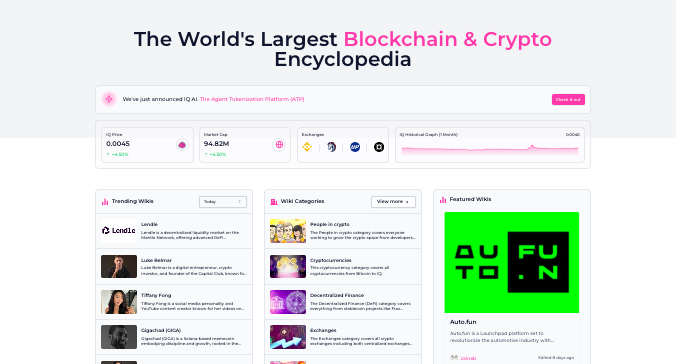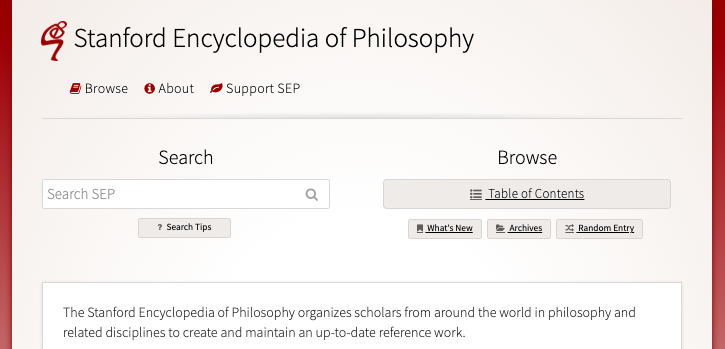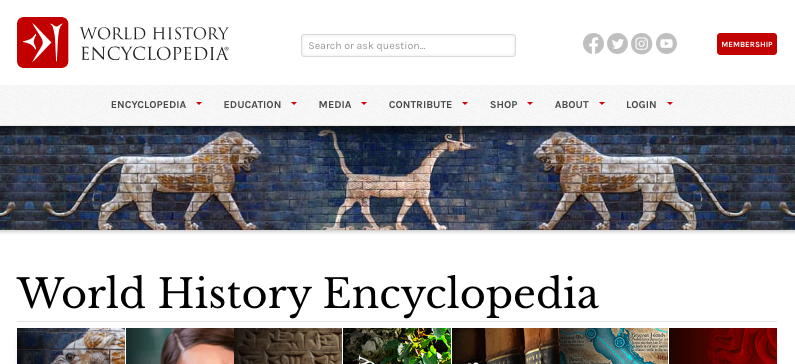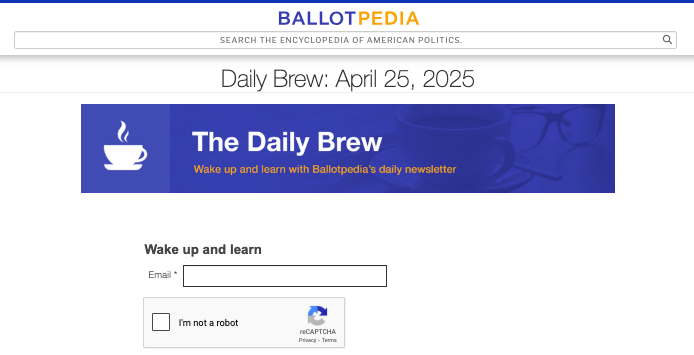Wikipedia has revolutionized how we access information, offering a vast repository of knowledge on countless topics.
However, despite its volunteer editors and verification processes, concerns about bias in certain articles persist.
Some critics argue that political, cultural, or ideological leanings can influence content, especially on controversial subjects.
For those seeking alternative perspectives or cross-referencing information, several platforms provide encyclopedia-style content with different editorial approaches.
If you’re one of them, read the post till the end. This guide explores ten alternatives to Wikipedia that aim to address bias concerns through various methodologies, from increased academic oversight to explicit ideological transparency.
1. Encyclopedia.com
Encyclopedia.com aggregates content from multiple respected reference works, including Oxford University Press, Columbia Encyclopedia, and various specialized dictionaries.
This aggregation model presents multiple perspectives on topics, allowing readers to compare different explanations and interpretations.
Each entry clearly identifies its source publication, enabling users to consider potential biases based on the publishing organization.
Encyclopedia.com excels in academic subjects and includes citation tools that make it particularly useful for students and researchers.
While it lacks Wikipedia’s depth in pop culture and current events, its multi-source approach and academic foundations make it a valuable resource for those seeking well-vetted information with transparent sourcing.
Also Read: Best Conservative News Websites
2. Britannica
Britannica stands as perhaps the most established alternative to Wikipedia, with roots dating back to 1768.
Unlike Wikipedia’s open editing model, Britannica employs professional editors and subject matter experts to create, verify, and maintain its content.
The approach results in thoroughly vetted articles with clear authorship attribution, reducing the risk of bias through anonymous edits.
Britannica’s editorial team follows rigorous fact-checking protocols and maintains strict standards for source quality.
While its coverage isn’t as extensive as Wikipedia’s and some content requires subscription access, Britannica offers free basic articles and represents a reliable source for foundational knowledge.
Its traditional editorial oversight provides a valuable counterbalance to Wikipedia’s crowdsourced approach.
Also Read: Most Popular Liberal News Websites
3. Scholarpedia
Scholarpedia takes expert-driven content to another level by functioning as a peer-reviewed academic resource.
Each article is authored by recognized experts in their fields and undergoes formal peer review similar to academic journal articles.
Many contributors are leading researchers, university professors, or industry specialists.
Unlike Wikipedia, where anyone can edit most pages, Scholarpedia changes require approval from the article’s curator.
The platform focuses primarily on scientific and academic subjects rather than general knowledge, with particular strength in mathematics, physics, computational neuroscience, and related disciplines.
While this specialized focus limits its general reference utility, Scholarpedia represents perhaps the most academically rigorous encyclopedia alternative, effectively bringing scholarly journal standards to encyclopedia format.
Also Read: Is Wikipedia Going Broke?
4. IQ.wiki (Formerly Everipedia)
Originally launched as a fork of Wikipedia, Everipedia was renamed IQ.wiki in 2022.
It has now evolved into a blockchain-based knowledge platform with unique features addressing potential bias concerns.
Contributors earn cryptocurrency tokens for creating or improving content, creating economic incentives for accuracy rather than ideology.
IQ.wiki’s decentralized structure resists centralized editorial control that might impose particular viewpoints.
The platform employs a more permissive content policy than Wikipedia, covering topics that Wikipedia might exclude for notability reasons.
IQ.wiki particularly shines in covering blockchain technology, cryptocurrency topics, and internet culture with greater depth than traditional encyclopedias.
Its innovative governance structure represents an interesting experiment in knowledge curation through tokenized incentives rather than traditional editorial hierarchies.
5. Conservapedia
Launched in 2006 explicitly as a conservative alternative to Wikipedia, Conservapedia makes no pretense of neutrality.
Instead, it openly presents information through a conservative Christian American perspective.
Articles often contrast with mainstream academic positions on topics like evolution, climate change, and historical events.
Conservapedia’s transparency about its viewpoint allows readers to understand its interpretive framework and compare it with other sources.
While critics point to factual inaccuracies in some articles, Conservapedia’s value lies in providing insight into how conservative thinkers interpret and contextualize information.
For researchers studying different ideological frameworks or readers seeking conservative perspectives, Conservapedia offers a window into this worldview’s approach to knowledge organization.
6. Citizendium
Founded by Wikipedia co-founder Larry Sanger, Citizendium emerged from concerns about Wikipedia’s lack of expert oversight.
Citizendium requires contributors to use their real names and credentials, creating accountability absent in anonymous editing systems.
Its “gentle expert oversight” model gives qualified specialists additional authority in their fields without excluding contributions from non-experts.
Articles undergo a formal approval process before being certified as reliable references.
While Citizendium’s growth has been slower than Wikipedia’s, resulting in more limited coverage, its articles often provide deeper analysis within its established topic areas.
The platform’s emphasis on expertise and real-name accountability represents an interesting middle ground between traditional encyclopedia editorial processes and collaborative knowledge creation.
Also Read: Most Biased Wikipedia Articles
7. InfoGalactic
InfoGalactic began as a Wikipedia fork but has developed distinct content policies and governance structures.
Its “Thought Frontier” system allows readers to view articles through different ideological lenses, recognizing that neutrality is often subjective.
Users can choose perspectives ranging from traditional/religious to progressive/secular viewpoints.
This approach acknowledges bias as inevitable and manages it through transparency rather than claiming perfect neutrality.
InfoGalactic’s governance includes merit-based promotion systems for editors and protection against coordinated activism.
While sometimes criticized for right-leaning perspectives in certain articles, InfoGalactic’s explicit acknowledgment of viewpoint differences provides an interesting approach to the neutrality challenges that plague all knowledge platforms.
8. Stanford Encyclopedia of Philosophy
Though specialized rather than general-purpose, the Stanford Encyclopedia of Philosophy (SEP) exemplifies how academic oversight can produce authoritative, balanced content.
Each article is written by experts in the specific philosophical topic, with editorial oversight from Stanford University philosophy faculty.
Articles undergo rigorous peer review and regular updates to reflect current scholarship.
The SEP excels at presenting multiple perspectives on complex philosophical issues, explaining different interpretations rather than presenting a single “correct” view.
This nuanced approach to knowledge, combined with academic rigor, makes the SEP a model for how specialized encyclopedias can address bias concerns through expertise and institutional accountability, even if its focus limits it to philosophical topics.
9. World History Encyclopedia
Formerly known as Ancient History Encyclopedia, this platform specializes in historical content with a commitment to cultural sensitivity and diverse perspectives.
Articles are written by historians, archaeologists, and other subject experts, with particular attention to representing non-Western historical narratives.
The encyclopedia’s editorial policy emphasizes including viewpoints and historical interpretations from various cultural traditions rather than privileging European or American perspectives.
Each article undergoes review by the editorial team, which includes scholars from diverse backgrounds.
While focused specifically on history rather than general knowledge, World History Encyclopedia demonstrates how specialty encyclopedias can address Western bias in particular knowledge domains through deliberate inclusion of multiple cultural perspectives.
10. Ballotpedia
For political topics specifically, Ballotpedia offers a non-partisan approach to documenting electoral information, political figures, and policy positions.
Its editorial team follows strict neutrality protocols, presenting multiple perspectives on controversial issues without favoring particular ideological positions.
Ballotpedia is particularly valuable for its detailed coverage of state and local politics that often receive limited attention in broader encyclopedias.
Content undergoes rigorous fact-checking with transparent citation practices.
While its scope is limited to politics and governance, Ballotpedia demonstrates how specialized encyclopedias can achieve balance in politically sensitive domains through strict editorial policies, transparent processes, and comprehensive coverage across the political spectrum.
Conclusion
The quest for unbiased information remains challenging, as all knowledge platforms reflect human judgment in their creation and curation.
Rather than seeking a perfectly neutral source, readers benefit from consulting multiple perspectives and understanding the editorial approaches behind different platforms.
The alternatives to Wikipedia highlighted above employ various strategies to address bias concerns, from expert oversight to viewpoint transparency.
By comparing information across these different sources, readers can develop more nuanced understanding of complex topics and better recognize how perspective shapes information presentation.

















